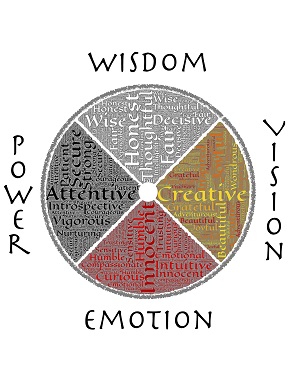The Measure of Maturity

As human beings, we are masters of self-deception. We can justify unhealthy choices and thoughts, we can convince ourselves that a lie is true and we can build an image of ourselves which does not reflect how others see us. We do all of these things in the name of self-preservation, but in the process we often pay a price in our relationships.
When counselling with couples, one of the most common criticisms I hear is: "She's so immature," or "He just doesn't want to grow up." Maturity is a really tricky concept to pin down. We all have clear ideas on how it should look, but most of those ideas don't agree.
However, even acknowledging that we will all do life differently due to personality, culture, and background, there are still some common factors which are a fundamental part of mature behaviour. You might like to see how you measure up against these.
- Financial independence. This doesn't mean wealth, but rather the ability to support your own needs, with income generated by your own efforts. Now this is the part that hurts: it's not our own efforts if we depend on benefits, or handouts from family and friends, or if we've been lucky enough to win the lottery, or receive an inheritance from a wealthy relative. If we're constantly needing to defer payments, or look for a bailout, then we're not financially independent. Ouch!
- Emotional independence. This is incredibly difficult to master but not impossible. If we are always blaming others (our partner, children, boss, parents) for the mood we are in, then we are not displaying maturity in our ability to accept personal responsibility, even for our feelings. If we expect, or even need someone else to make us feel good, then we are not yet mature in the area of emotions.
- Social independence. Do you always need to have someone else to do things with, even everyday tasks such as shopping? Do you rush to answer every call or text on your phone, no matter where you are, or what you're doing? Are you constantly checking Facebook, Twitter, or your preferred social medium to keep in touch with what others are doing? Do you avoid being alone whenever possible? These can all be indicators that you are socially dependent and therefore not yet mature.
- Personal autonomy. This is the ability to accept full responsibility for our decisions and for the consequences which go with them. It also involves our ability to be self - motivated, and to set and pursue goals without having to be dragged kicking and screaming. If we still play the blame game, then we are not yet able to claim to be mature.
- Appropriately responsive to others. This includes being sensitive to the needs of others, but not necessarily taking responsibility for meeting those needs. Obviously it is appropriate to care for the needs of small children, or for those who are in genuine need, but sometimes the hard (but mature) choice may be to say "No", to the demands of others. If we allow ourselves to be bullied, bribed or emotionally blackmailed into doing what others want us to, when it is not in their best interests or in ours, then we have not yet reached maturity.
Remember that maturity is a journey, not just a destination, but one which hopefully we draw closer to with every healthy choice we make.
For help with maturity issues, contact Alli at Point Of Change Counselling for an appointment.
